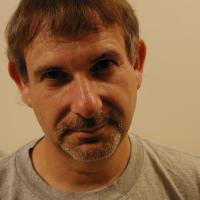
Classic Books
Rabbi Evan Gary asks:
Could you recommend a good old classic book (the more classical the more interesting) giving theoretical (perhaps even some philosophical, esoteric) information about Chess?
Thank you very much.
Dear Rabbi Gary:
One of the great things about chess is its history and the wealth of wonderful material floating around online and/or in used bookstores. There are more books on chess than all other games and sports combined! Though much of this comes from the opening book conveyor belt, quite a few are thoughtful pieces of work about chess legends, chess history, and other areas that explore the game’s emotion, philosophy, and heart.
Here are a few that I feel will keep the reader spellbound (all are out of print and can be found online or in many used bookstores for very low prices). They discuss why players became addicted to the game, how different time periods influenced their game and their way of life, and the adventures that the chess greats regularly experienced:
PACHMAN’S DECISIVE GAMES (Pitman, 1975), later published by Dover as DECISIVE GAMES IN CHESS HISTORY by Pachman
This book is simply delightful. It covers 50 classic chess events (tournaments and matches from Baden-Baden 1870 to Fischer’s match with Spassky in 1970), gives a crosstable and exciting build-up, and then offers one or more of the decisive games that contributes to the final result. It’s written in a way that not only teaches you a lot about chess history, but also creates an edge-of-your-seat rush as you long to know who won and why – in many ways it makes you feel like you’re there live, living out every thrilling moment as it was happening.
CHESS FOR FUN AND CHESS FOR BLOOD by Edward Lasker (1942, but endless editions afterward make it easy to find)
A very personal little book by a chess legend (Edward Lasker – don’t confuse him with World Champion Emanuel Lasker!) that highlights his philosophy of chess, and also follows some of his adventures. This includes his amazing game vs. Emanuel Lasker in New York 1924 which he appeared to be winning. The press was ready to publish the story of this epic upset but the World Champion found a miracle drawing maneuver that had never been seen before! Poor Edward had to rush into the pressroom and get them to quash the story.
One of my favorite moments in the book appears early when he has several prominent people discuss why they love chess. Thus he presents these as, “From a Mathematician”, “From a Scientist”, and after more highbrowed individuals are introduced and have their say, we get, “From a Woman.” This (and the shocking things she says) really illustrates the time period that the book was written in!
CHESS FOR FUN AND CHESS FOR BLOOD appears in most used bookstores and is very inexpensive. Great value for the money! I’ve read it over a dozen times since I first learned to play chess, and I’m sure I’ll read it quite a few times more.
The next recommendation is by Fred Reinfeld. When I was starting out, Reinfeld was a bit of a laughing stock – his books were considered to be garbage that only the unwary chess hopeful would purchase. The truth is that Fred Reinfeld was way ahead of his time. He was the first to crank out an enormous amount of chess books, and in retrospect, many of them were really excellent. We’ll discuss my favorite Reinfeld book:
THE GREAT CHESS MASTERS AND THEIR GAME (1952)
THE GREAT CHESS MASTERS AND THEIR GAME is a complete history lesson, but passionately written and offering insights that had never before appeared in other sources. The information given on these giants (Adolf Anderssen, Paul Morphy, Wilhelm Steinitz, Emanuel Lasker, Capablanca, Alehine, Euwe) is often mind blowing, and once you begin reading this 302-page monster you’ll have trouble putting it down.
PSYCHOLOGY OF THE CHESS PLAYER by Reuben Fine
This was originally a paper published in 1956 under the title of PSYCHOANALYTIC OBSERVATIONS ON CHESS AND CHESS MASTERS. In 1967 it appeared again, this time with a new title: PSYCHOLOGY OF THE CHESS PLAYER. Fine was one of the very finest players in the world, but quit chess so he could pursue a career in psychoanalysis. A pure Freudian, this book gives you all the things you’d expect from someone that hails from such a limited view of reality (everything is based on sex, sexual repression, the need to have sex with your mother, and the need to do who knows what with your father). I got the original edition for two dollars at a used bookstore, and it promises many “eyes wide open” moments, as well as endless laughs over how pompous and deluded poor Fine really was.
THE BATTLE OF CHESS IDEAS by Anthony Saidy (1972)
Tony considers this to be his masterpiece, and it certainly shows his enormous love for chess. Here we see the legendary International Master tackle the search for meaning in chess, the romantic era of the game, ideas in and about chess, “search for synthesis”, and detailed looks at Botvinnik, Reshevsky, Keres, Bronstein, Smyslov, Tal, Petrosian, Larsen, Spassky, Fischer, and Karpov.
This is harder to find than the other books, but will be a welcome addition to any serious collection.






